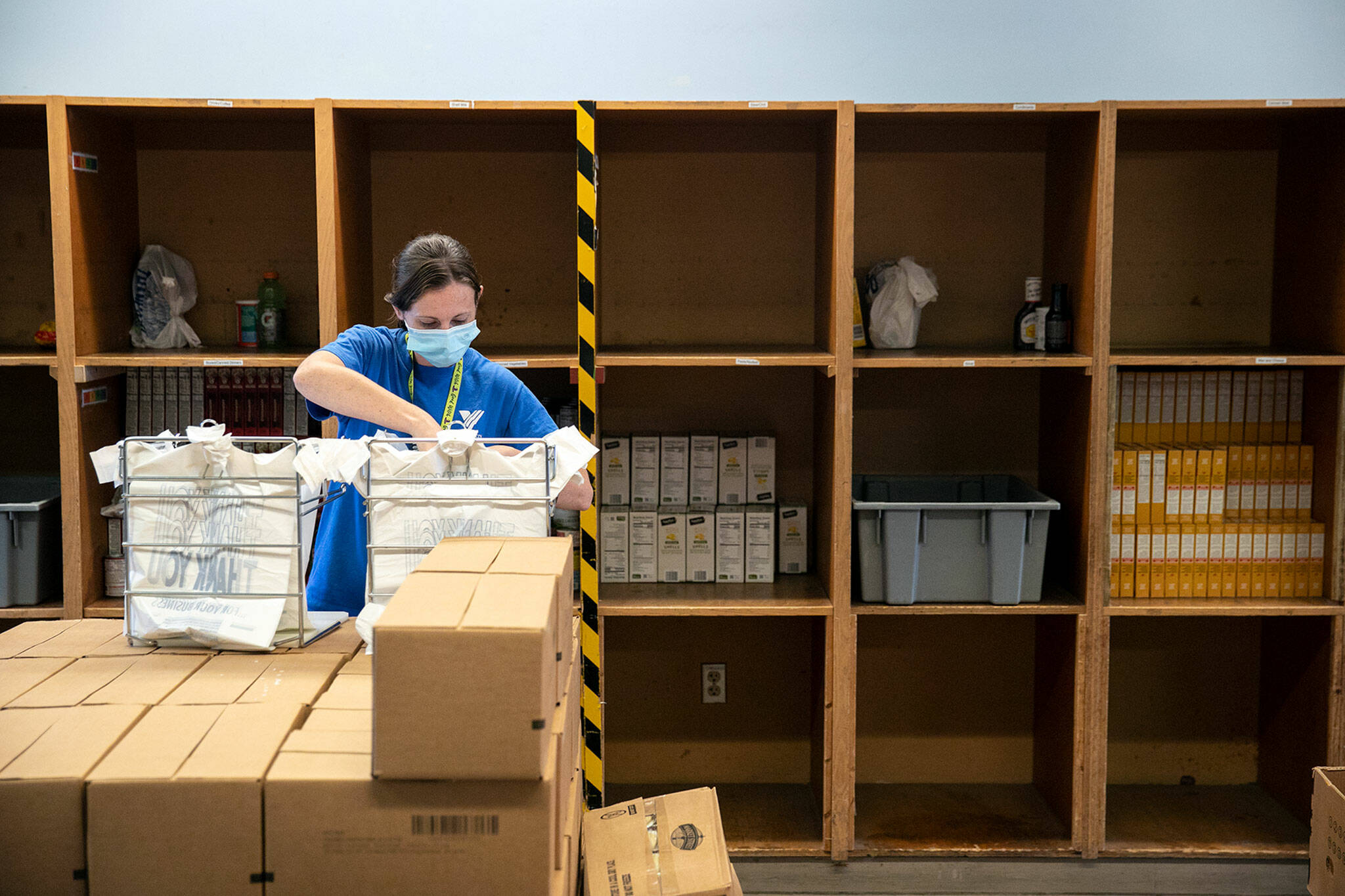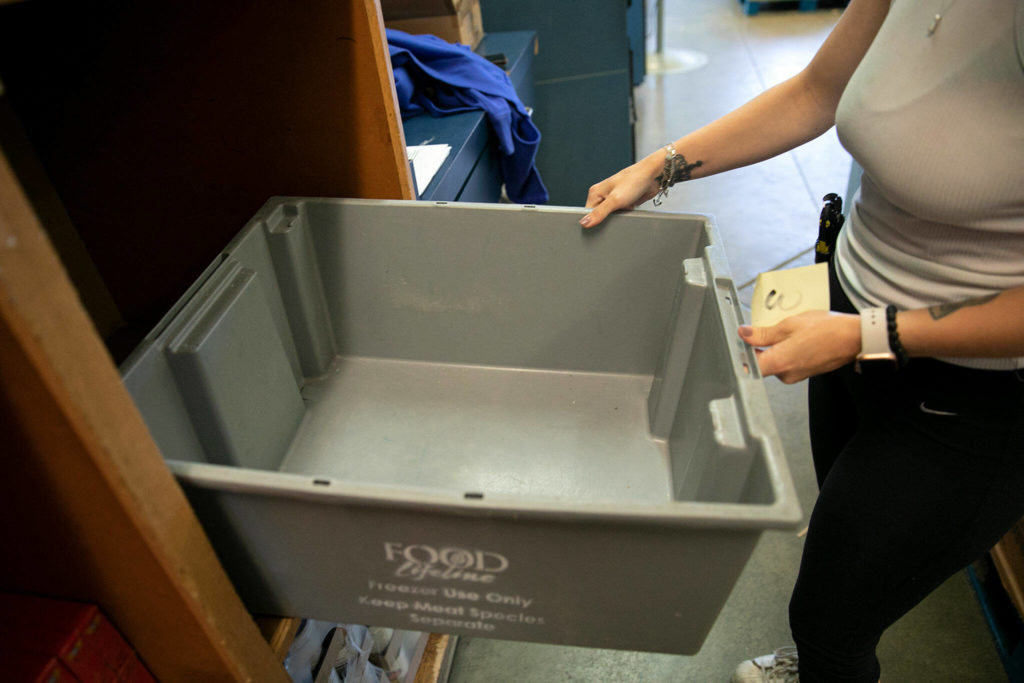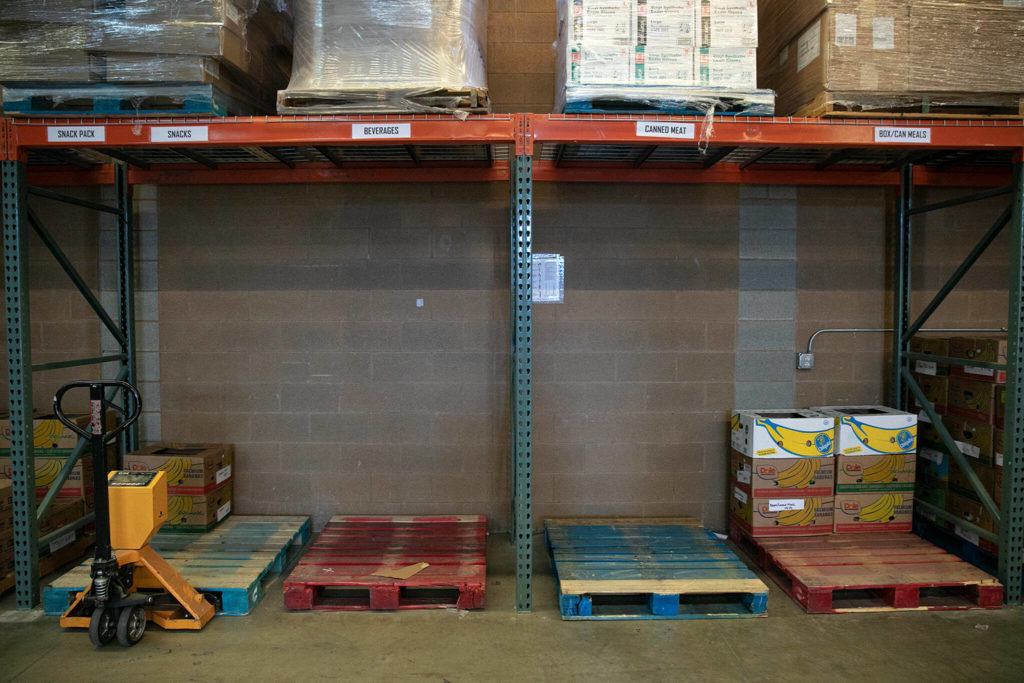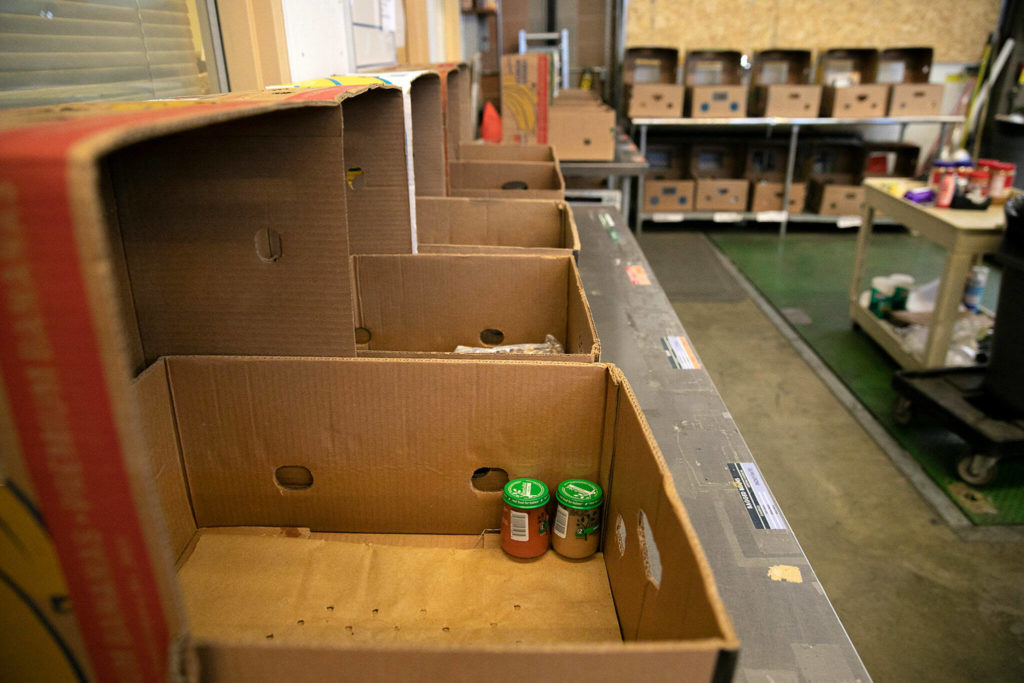EVERETT — Usually, the plastic totes are filled to the brim with packages of ramen. On Friday? Empty.
It’s just one piece of a troubling picture at Snohomish County food banks: shortages amid a surge in demand and high inflation.
“Walking into the warehouse, the shelves are bare,” said Chris Hatch, senior director of Hunger Prevention with Volunteers of America Western Washington. The nonprofit operates food banks in Everett and Sultan and pop-up pantries off Casino Road.
In June, the number of people accessing the Everett Food Bank increased 138% over figures from April, exceeding demand early in the pandemic, according to the Volunteers of America.
Meanwhile, donations have slowed. Inflation has squeezed budgets.
Due to these challenges, the nonprofit temporarily cut back service this month at its Everett site. Food bank customers are limited to twice per month visits, instead of weekly. There are no changes to service at the Sultan Food Bank.
“It’s very scary,” Hatch said. “I don’t like telling people we don’t have food.”
More have turned to food banks as inflation hit their grocery bills. Grocery prices spiked by 12.2% in June from last year, according to the Consumer Price Index. Poultry rose 17.3%, pork 9%, eggs 33% and fresh fruits and vegetables 7%.
Inflation has also eaten up food banks’ budgets. A pallet of eggs now costs the Lynnwood Food Bank $2,200, up from $700, said executive director Alissa Jones. She said the food bank has shortages of pasta and canned fruit and vegetables — staples that are usually in stock.
“There is not a single item we have too much of,” she said.
Incoming pounds of food dropped from 124,785 in April 2021 to 91,349 this year, according to the Lynnwood Food Bank.
“It’s not coming in like it was,” Jones said. “I understand it’s tough for everybody right now, but our need has increased.”
The food bank served 82,873 customers between July 1, 2021 and June 30, 2022, an increase of about 12% over the year before. That’s up from 42,000 customers pre-pandemic.
As it serves more people, the food bank is seeing fewer volunteers, Jones said.
Despite the challenges, the Lynnwood Food Bank has not cut back on service and “will continue to serve anybody who needs food,” she said.
Hatch said the drop in food coming in is two-fold: It’s a reflection of fewer donations and less food from the grocery rescue program.
“We’ve had to purchase meat just so we had it for distribution,” he said. “That gets very costly. Our food banks run 100% off donations.”
For example, the Volunteers of America paid $8,000 for ground beef to add to weekly food boxes distributed to families, Hatch said. That was gone in just a few weeks, whereas normally it would last a month.
The good news is that there’s been an uptick in donations in recent weeks, he said. The Volunteers of America take donations of both food and cash, though cash is preferred.
Protein, dairy and fresh fruits and vegetables are some of the most in demand items. Feminine hygiene products, laundry detergent and dish soap are also desperately needed. Jones said people can also donate garden-grown produce.
In Lynnwood, there is a particular need for traditional foods,she added. That includes Latin chili pepper pods, corn husks, Asian-style sauces and noodles, basmati rice, Couscous, dried fruits, and nuts and spices.
To donate at the Lynnwood Food Bank, call 425-745-1635 or email lynnwoodfoodbank@comcast.net.
To donate to the Volunteers of America distribution center, which serves 17 food banks and 18 meal programs in the county, visit voaww.org/donate.
Herald photographer Ryan Berry contributed to this report.
Jacqueline Allison: 425-339-3434; jacqueline.allison@heraldnet.com; Twitter: @jacq_allison.
Talk to us
> Give us your news tips.
> Send us a letter to the editor.
> More Herald contact information.




























